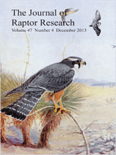
JOURNAL OF RAPTOR RESEARCH
Scope & Guideline
Illuminating the Path for Raptor Preservation
Introduction
Aims and Scopes
- Raptor Ecology and Behavior:
The journal emphasizes studies on the ecological roles and behavioral patterns of raptors, including nesting, foraging, and migratory behaviors. - Conservation and Management:
A significant focus is on the conservation challenges faced by raptors and the management strategies necessary to mitigate these challenges, including habitat preservation and restoration. - Human-Raptor Interactions:
Research on the interactions between raptors and humans, including urban adaptation, human persecution, and the effects of anthropogenic changes on raptor populations, is increasingly prominent. - Diet and Feeding Strategies:
The journal features studies exploring the dietary habits and feeding strategies of various raptor species, contributing to the understanding of their ecological niches. - Population Dynamics and Monitoring:
The publication covers research on population trends, monitoring techniques, and demographic studies, which are essential for effective conservation planning. - Citizen Science and Community Engagement:
There is a growing inclusion of citizen science methodologies in raptor research, highlighting the role of public participation in data collection and conservation efforts.
Trending and Emerging
- Urban Ecology of Raptors:
Research focusing on raptor adaptation to urban environments is gaining traction, reflecting the increasing urbanization of habitats and the need to understand how raptors thrive in these altered landscapes. - Impact of Climate Change:
The effects of climate change on raptor populations and their habitats are increasingly being addressed, emphasizing the urgency of understanding how shifting climate patterns affect raptor ecology. - Citizen Science Initiatives:
The use of citizen science as a tool for data collection and monitoring of raptors is on the rise, underscoring the importance of community involvement in conservation efforts. - Anthropogenic Effects on Raptor Behavior:
Studies examining how human activities, such as land use changes and infrastructure development, affect raptor behavior and ecology are becoming more prominent. - Conservation Genetics:
An increasing number of studies are focusing on the genetic aspects of raptor conservation, exploring how genetic diversity influences population viability and resilience.
Declining or Waning
- Genetic Studies of Raptors:
Research focusing on genetic differentiation and phylogeography of raptor species has seen a decrease, possibly due to a shift towards more ecological and conservation-oriented studies. - Traditional Taxonomy and Morphometrics:
Although still relevant, studies that primarily focus on taxonomic classifications and morphometric analyses of raptors have become less frequent, as researchers lean towards integrative approaches that combine genetics, behavior, and ecology. - Historical Ecology:
Papers that explore historical ecological contexts and how past conditions shaped current raptor populations are less common, indicating a potential waning interest in retrospective studies.
Similar Journals

JOURNAL OF ORNITHOLOGY
Advancing Knowledge in Bird ConservationJOURNAL OF ORNITHOLOGY, published by Springer Heidelberg, is a leading international journal dedicated to the study of birds and their conservation. With an ISSN of 2193-7192 and an E-ISSN of 2193-7206, this journal serves as a crucial platform for disseminating innovative research focused on avian biology, ecology, and behavior, making significant contributions to the fields of Agricultural and Biological Sciences and Animal Science and Zoology, where it holds a commendable rank of #156 out of 490 in Scopus. Established from 2004 and continuing through 2024, the journal strives not only to advance academic scholarship but also to inform practical conservation efforts globally. While currently not open access, it remains a vital resource for researchers, professionals, and students seeking high-quality studies and findings that influence the understanding and preservation of bird species. The journal's commitment to excellence in science highlights its importance in ornithological research, offering insights that are both profound and actionable.

Ornithology Research
Unveiling the Secrets of Bird LifeOrnithology Research is a leading academic journal published by SPRINGERNATURE, specializing in the field of avian studies and contributing to the broader category of Animal Science and Zoology. With a respectable Q2 ranking in its field as of 2023, this journal provides a dynamic platform for the dissemination of innovative research findings related to ornithology, ecology, and conservation. The journal, which transitioned to an Open Access model, ensures that its research is accessible to a global audience, fostering collaboration and knowledge sharing across disciplines. With an E-ISSN of 2662-673X, Ornithology Research serves the needs of researchers, professionals, and students dedicated to understanding the complexities of avian life. Its commitment to high-impact, peer-reviewed articles makes it an essential resource for anyone interested in advancing the science of ornithology.
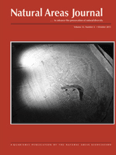
NATURAL AREAS JOURNAL
Unveiling the Intricacies of Ecosystems and Their PreservationNATURAL AREAS JOURNAL, published by the NATURAL AREAS ASSOCIATION, serves as a vital resource for scholars and practitioners in the fields of ecology and nature conservation. Since its inception in 1993, this quarterly academic journal delivers original research, case studies, and reviews that focus on the preservation of natural areas and the intricate relationships within ecosystems. The journal, indexed under ISSN 0885-8608 and E-ISSN 2162-4399, currently holds a Q3 quartile ranking in both Ecology and Nature and Landscape Conservation as of 2023, reflecting its commitment to advancing knowledge in these essential areas. With Scopus rankings placing it at the 39th percentile in Nature and Landscape Conservation and 36th in Ecology, the NATURAL AREAS JOURNAL is an influential platform that fosters interdisciplinary collaboration and advocacy for conservation efforts. Although it currently does not offer Open Access options, its contributions are pivotal for researchers, professionals, and students seeking to explore, understand, and contribute to conservation science.
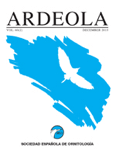
Ardeola-International Journal of Ornithology
Diving into the Depths of Avian ScienceArdeola - International Journal of Ornithology, published by the SOCIEDAD ESPAÑOLA DE ORNITOLOGÍA, serves as a vital platform for the dissemination of research in the field of avian studies. With a history dating back to 1980, this esteemed journal has cultivated a reputation for high-quality research, achieving a notable Q2 category ranking in Animal Science and Zoology as well as in Ecology, Evolution, Behavior, and Systematics as of 2023. While primarily based in Spain, Ardeola caters to a global audience, providing essential insights into ornithology through rigorously peer-reviewed articles. The journal does not currently operate under an open-access model, which underscores the significance of institutional subscriptions and the importance of supporting academic publishing. Researchers, professionals, and students engaged in avian ecology will find Ardeola indispensable for accessing impactful studies that advance our understanding of bird populations, behaviors, and conservation issues. With its accessibility and continuing commitment to excellence, Ardeola plays a crucial role in fostering knowledge and promoting dialogue in the ornithological community.
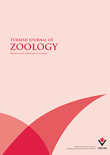
TURKISH JOURNAL OF ZOOLOGY
Fostering Global Collaboration in Animal ScienceThe TURKISH JOURNAL OF ZOOLOGY, published by the esteemed Tubitak Scientific & Technological Research Council Turkey, serves as a pivotal platform for the dissemination of research in the field of zoology and animal science. With an ISSN of 1300-0179 and an E-ISSN of 1303-6114, this journal has been contributing to the scientific community since its inception in 1994 and will continue to do so through 2024. Renowned for its scientific rigor, the journal holds a Q3 ranking in the 2023 category of Animal Science and Zoology, placing it within the prominent ranks of Scopus with a current percentile of 56, and an overall rank of 214 out of 490 in its domain. As an essential resource for researchers, professionals, and students, the journal prioritizes quality research, fostering knowledge exchange and collaboration among scholars worldwide. With its commitment to advancing understanding in zoological sciences, the TURKISH JOURNAL OF ZOOLOGY stands as a significant contribution to the global scientific dialogue.
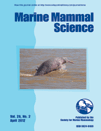
MARINE MAMMAL SCIENCE
Unraveling the mysteries of marine mammal behavior and biology.MARINE MAMMAL SCIENCE, published by Wiley, is a premier journal dedicated to advancing the field of marine mammal research since its inception in 1985. With an impressive impact factor and categorized as Q1 in both Aquatic Science and Ecology, Evolution, Behavior and Systematics, this journal serves as a vital platform for innovative research and findings in marine biology, conservation, and ecology. It ranks 165th out of 721 in the Scopus category of Ecology, Evolution, Behavior and Systematics and 65th out of 247 in Aquatic Science, showcasing its influence and relevance in the academic community. Covering a wide range of topics, from behavior and anatomy to conservation and habitat management, MARINE MAMMAL SCIENCE aims to foster a deeper understanding and promote proactive strategies for the preservation of marine mammals. Researchers, professionals, and students will find invaluable insights and the latest advancements in this journal, contributing significantly to the discourse on marine conservation and ecology.

AUSTRALIAN JOURNAL OF ZOOLOGY
Delving into the Dynamics of Australian FaunaAustralian Journal of Zoology, published by CSIRO PUBLISHING, serves as a premier platform for research in the fields of animal science and zoology, with a profound commitment to advancing our understanding of wildlife and ecosystems. Featuring an ISSN of 0004-959X and an E-ISSN of 1446-5698, this esteemed journal encompasses a wide range of topics relevant to ecology, evolution, behavior, and systematics. For the year 2023, it holds a commendable Q2 ranking in both Animal Science and Zoology and Ecology, Evolution, Behavior, and Systematics, demonstrating its significant impact within the academic community. With a rich publication history spanning from 1952 to 2024, the journal caters to researchers, professionals, and students by disseminating crucial findings and methodologies that contribute to effective conservation efforts and informed ecological practices. Although not an open access journal, it continues to foster collaboration and discussion among scholars in Australia and beyond. Located in Clayton, Victoria, the journal remains dedicated to its objective of enhancing knowledge in zoological sciences and addressing vital environmental challenges.
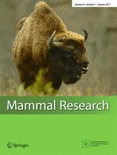
Mammal Research
Pioneering Research in Animal Science and EcologyMammal Research, published by Springer Heidelberg, is a prominent academic journal dedicated to advancing knowledge in the fields of Animal Science, Zoology, Ecology, Evolution, and Behavior. With an impressive Q2 ranking in both Animal Science and Zoology and Ecology, Evolution, Behavior and Systematics as of 2023, this journal is an essential resource for researchers and professionals seeking to publish innovative findings that contribute to our understanding of mammalian biology. The journal operates under an Open Access model, allowing a wide audience to access and engage with high-quality research articles. Converging between 2015 to 2024, Mammal Research serves as a vital platform for scholarly discourse, promoting rigorous scientific inquiry and collaboration among experts and students alike in the fascinating study of mammals.
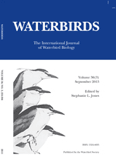
WATERBIRDS
Advancing Knowledge on Waterbirds and Their EcosystemsWATERBIRDS, published by the WATERBIRD SOC, serves as a vital scholarly resource in the field of Animal Science and Zoology. With its ISSN 1524-4695 and E-ISSN 1938-5390, this journal has established a significant presence since its inception in 1996, continuing to contribute valuable insights and research up to 2024. Recognized for its impact within the academic community, WATERBIRDS is currently positioned in the third quartile (Q3) for its category in 2023, ranking 335 out of 490 in Scopus's Agricultural and Biological Sciences sector, which underscores its role in promoting the study of avian species and their habitats. The journal is accessible to a wider audience, aligning with the growing demand for open access to scientific knowledge. By disseminating research that addresses both ecological and conservation issues pertinent to waterbirds, this publication serves as an essential platform for researchers, professionals, and students dedicated to advancing the understanding of avian biology and related fields.
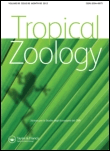
TROPICAL ZOOLOGY
Fostering conservation knowledge in diverse habitats.TROPICAL ZOOLOGY is a prestigious academic journal dedicated to advancing knowledge and research in the fields of animal science, zoology, and ecology. Published by PAGEPRESS PUBL, this journal has been an integral part of the scientific community since its inception in 1988, providing a platform for the dissemination of innovative research and discoveries related to tropical wildlife and ecosystems. With an impact factor placing it in the Q3 category for both Animal Science and Zoology, as well as Ecology, Evolution, Behavior, and Systematics, it ranks among the noteworthy publications in these fields. Researchers, professionals, and students will find that TROPICAL ZOOLOGY is an essential resource for the latest findings, fostering a deeper understanding of biodiversity and conservation in tropical environments. The journal is based in the United Kingdom, with additional administrative support from MEDIGROUP in Italy, ensuring a broad international perspective and reach. While it does not operate under an open access model, it remains committed to high-quality peer-reviewed content that contributes significantly to the understanding of tropical ecosystems and the species that inhabit them.